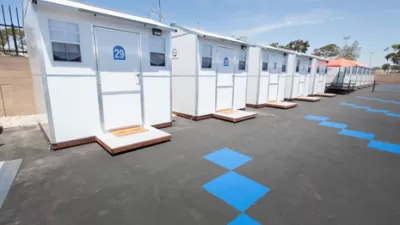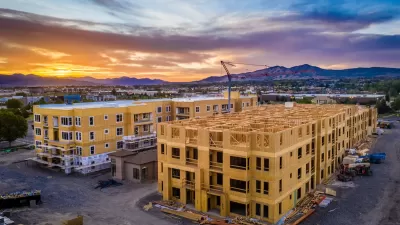In 2015, compared to 2009, the nation had more people and lower incomes, but higher rents. All things being equal, the number of people who are homeless should have gone up. But it did not. It went down. What changed, and what's next?

Between 2009 and 2015 (our most recent numbers) we have:
- Reduced homelessness by 10 percent
- Reduced homelessness among individual adults by 9 percent
- Reduced family homelessness by 13 percent
- Reduce chronic homelessness by 22 percent
- Reduced the number of people who are unsheltered by 24 percent
- Reduced veteran homelessness by 35 percent
During this same period:
- The population went up 5 percent
- The rental vacancy rates fell to 7.1 percent
- Average rents have gone up
- Median household income went down 3 percent
So there were more people, lower incomes, but higher rents. All things being equal, the number of people who are homeless should have gone up. But it did not. It went down. Why? Because of your work. And . . .
FULL STORY: Homelessness Is Falling Despite Worsening Conditions. Why?

Planetizen Federal Action Tracker
A weekly monitor of how Trump’s orders and actions are impacting planners and planning in America.

Congressman Proposes Bill to Rename DC Metro “Trump Train”
The Make Autorail Great Again Act would withhold federal funding to the system until the Washington Metropolitan Area Transit Authority (WMATA), rebrands as the Washington Metropolitan Authority for Greater Access (WMAGA).

DARTSpace Platform Streamlines Dallas TOD Application Process
The Dallas transit agency hopes a shorter permitting timeline will boost transit-oriented development around rail stations.

Renters Now Outnumber Homeowners in Over 200 US Suburbs
High housing costs in city centers and the new-found flexibility offered by remote work are pushing more renters to suburban areas.

The Tiny, Adorable $7,000 Car Turning Japan Onto EVs
The single seat Mibot charges from a regular plug as quickly as an iPad, and is about half the price of an average EV.

Supreme Court Ruling in Pipeline Case Guts Federal Environmental Law
The decision limits the scope of a federal law that mandates extensive environmental impact reviews of energy, infrastructure, and transportation projects.
Urban Design for Planners 1: Software Tools
This six-course series explores essential urban design concepts using open source software and equips planners with the tools they need to participate fully in the urban design process.
Planning for Universal Design
Learn the tools for implementing Universal Design in planning regulations.
Roanoke Valley-Alleghany Regional Commission
City of Mt Shasta
City of Camden Redevelopment Agency
City of Astoria
Transportation Research & Education Center (TREC) at Portland State University
US High Speed Rail Association
City of Camden Redevelopment Agency
Municipality of Princeton (NJ)





























